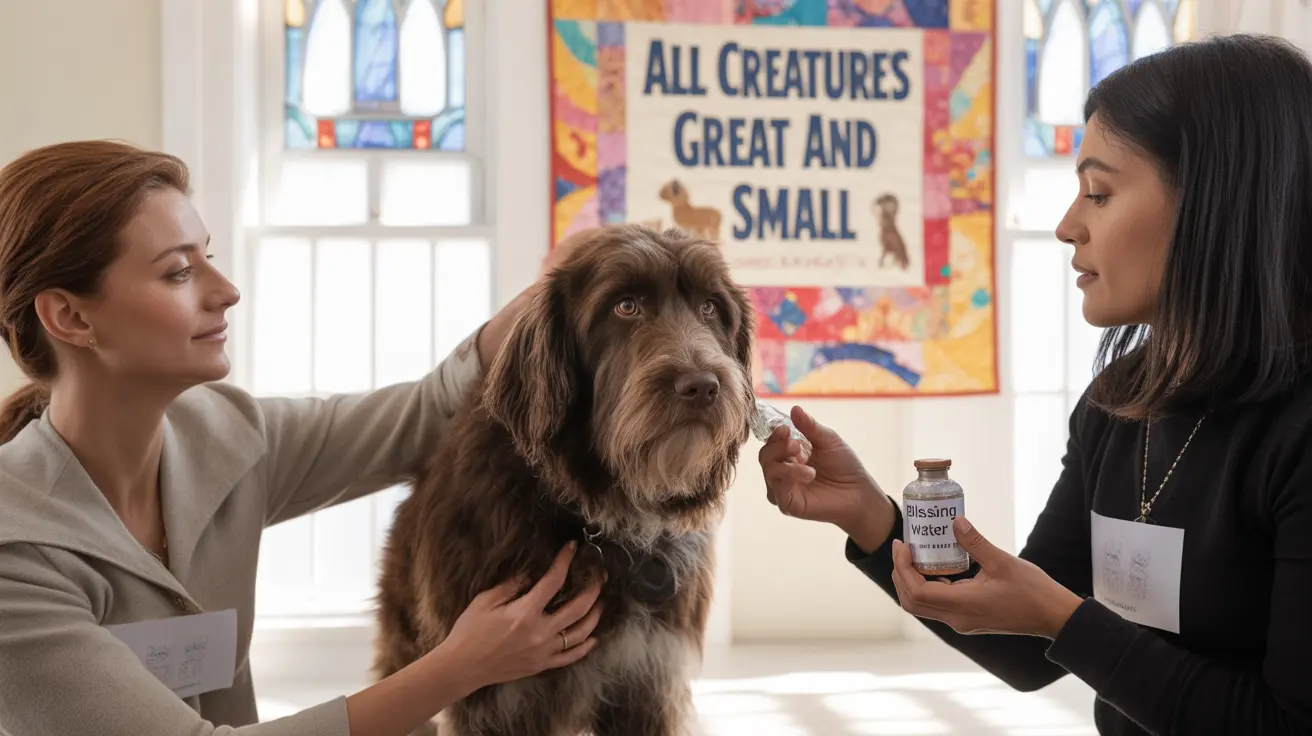St. Paul's Episcopal Church in Natick continued its cherished tradition this Sunday, October 5, by hosting their annual Blessing of the Animals ceremony in observance of the Feast of St. Francis. This heartwarming event brought together local pet owners and their beloved companions for a meaningful celebration of the human-animal bond.
The ceremony, which honors the legacy of St. Francis of Assisi, known as the patron saint of animals, reflects the church's commitment to recognizing and blessing the special relationships between people and their animal companions. This annual tradition serves as a reminder of the importance of responsible animal stewardship and the joy that pets bring to our lives.
The Significance of Animal Blessing Ceremonies
Animal blessing ceremonies have deep roots in Christian tradition, particularly within the Episcopal Church. These events provide an opportunity for pet owners to celebrate their animal companions while acknowledging their role as stewards of God's creation. The timing of the ceremony coincides with the commemoration of St. Francis, whose love for all creatures has inspired centuries of animal welfare advocacy.
Spiritual Pet Blessing and Community Connection
The gathering at St. Paul's Episcopal Church Natick demonstrates how pet blessing events can strengthen community bonds. These inclusive services welcome all members of the congregation and their pets, creating a unique atmosphere where faith and animal companionship intersect. The ceremony acknowledges the important role that animals play in our lives while fostering a sense of shared values among participants.
Christian Pet Blessings: A Growing Tradition
Modern animal blessing ceremonies have evolved to become more inclusive and accessible. While maintaining their spiritual significance, these events often incorporate elements that celebrate the practical aspects of responsible pet ownership and animal care. The tradition continues to adapt while preserving its core message of compassion and stewardship.
Caring for Animals in Faith
The annual event serves as a reminder of our responsibility to care for all creatures. It emphasizes the importance of treating animals with kindness and respect, reflecting both religious teachings and contemporary values regarding animal welfare. This intersection of faith and practical pet care creates a meaningful experience for participants.
Community Impact and Participation
The Blessing of the Animals brings together diverse members of the community, united by their love for their pets. This shared experience helps strengthen neighborhood connections while providing an opportunity for pet owners to reflect on the special bond they share with their animals.
Frequently Asked Questions
What is the Blessing of the Animals ceremony, and why is it held at St. Paul's Episcopal Church?
The Blessing of the Animals is a traditional ceremony held in honor of St. Francis of Assisi, celebrating the human-animal bond and acknowledging our role as stewards of creation. St. Paul's Episcopal Church hosts this annual event as part of their observance of the Feast of St. Francis, continuing a long-standing Christian tradition of blessing animals.
How can I prepare my pet to participate in the Blessing of the Animals?
While each church may have specific guidelines, general preparation includes ensuring your pet is well-rested, properly restrained, and comfortable around other animals and people. Consider bringing water, treats, and any necessary supplies to keep your pet comfortable during the ceremony.
Which kinds of animals are typically blessed during these events?
These inclusive ceremonies typically welcome all types of pets, though most commonly dogs and cats attend. Some people also bring photos or representations of pets who cannot attend, including fish, birds, or animals that might be stressed by crowds.
The annual Blessing of the Animals at St. Paul's Episcopal Church Natick represents more than just a religious ceremony – it's a celebration of the profound connections between humans and animals, and a reminder of our shared responsibility to care for all creatures. As this tradition continues to evolve, it remains a meaningful way for communities to come together in appreciation of their animal companions.






